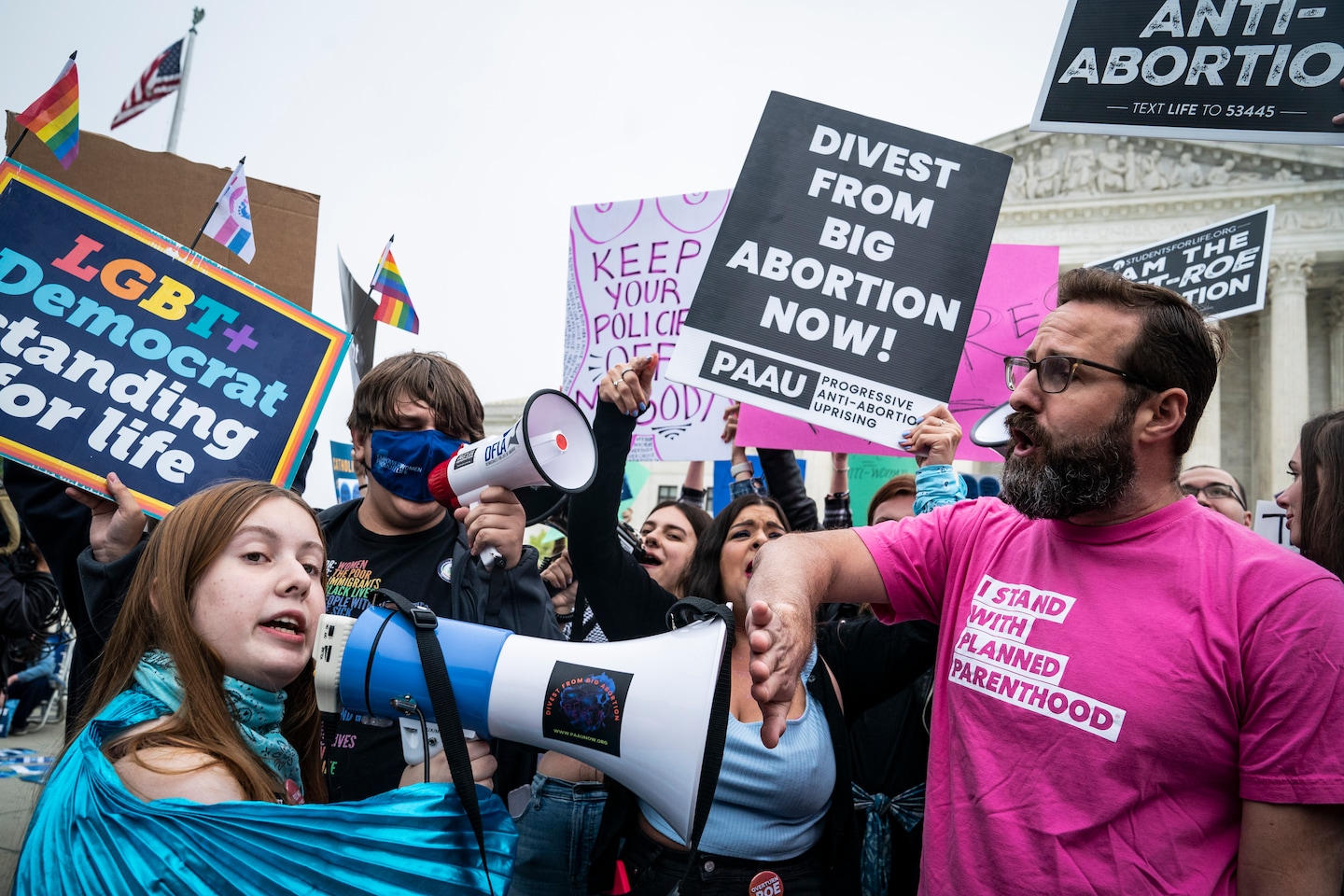What about the children?
The GOP roars about abortion. Then they abandon the children.

Short answer? It hardly exists. This is the false piety hidden in the Republican Party’s zeal to roll back a woman’s right to choose. The sanctity of human life is all-important right up to the point when that flesh-and-bone child enters a world where programs designed to support women, the poor or households teetering toward economic ruin are being scaled back by a party that claims to be about family values. Family, for the radicalized GOP, is too often an inelastic framework built around powerful men, subordinate women, and children who will learn how to hurl themselves forward in life, even if there’s no money, few educational opportunities, no job prospects in their future, no proverbial boots with magical straps to lift their fortunes toward the sun.
The pro-life warriors — including legislators who have been rolling back abortion rights at the state level — are silent when it comes to fighting for even the simple principle of enhanced child support enforcement so the men who father these children can provide for the life they create. Let’s not forget that women who seek abortions are disproportionately poor or economically insecure. A 2014 study found that 3 in 4 women who terminate their pregnancies are low-income and almost 50 percent of those women live below the poverty level. Fifty-five percent are unmarried or do not live with the father.
Follow Michele L. Norris‘s opinions
FollowDiana Greene Foster, a professor at the University of California at San Francisco in the Department of Obstetrics, Gynecology and Reproductive Sciences, knows what a world without abortion looks like. She spent 10 years tracking thousands of women and reports that women who were denied abortions because of rules around gestation limits were more likely to be single, without steady work, without a partner and without family support five years later. Those women also reported feeling trapped and less emotionally bonded to their new babies compared with women who had abortions and then had subsequent children later in life.
“It is by no means a given that a woman who did not want to have a baby cannot forge a loving and healthy relationship with that child, even if it doesn’t happen right away,” Greene Foster writes in her book “The Turnaway Study.” “But the finding does underscore the adverse circumstances for the child when a woman continues a pregnancy against her will.”
A further irony is that many of the states that have enacted the most restrictive bans on abortion also spend the least money to provide health and economic benefits for expecting mothers and children once they’re born.
The numbers don’t lie when you look at state rankings on maternal morbidity, infant mortality, premature birth, child poverty, birth weight, access to health care, day care, food stamps and housing. Supreme Court Justice Samuel A. Alito Jr.’s draft opinion is about a case that comes from Mississippi — a state that ranks dead last in preterm births, neonatal mortality and overall child well-being.
Some religious institutions do focus on the outcome of unplanned pregnancies. The Gabriel Project, sponsored by Catholic Charities, is a crisis pregnancy center that aims to offer compassionate and confidential ministry to those pregnant and in distress. Clearly, its aim is to reduce the number of abortions, but at least a program such as this centers women and the children they might bear. That rarely happens in political or legal debates about abortion.
The women who contemplate ending their pregnancies never really take center stage in this drama. Their dilemma is framed as simply a choice. Their anguish is subject to moral policing. Their reasons (poverty, abusive partner, age, insufficient life skills) are brushed away by majority White and male lawmakers who have no problem policing women’s bodies but have been howling for months about something as simple as mask mandates. Even women who become pregnant under the most horrible of circumstances — rape or incest — are criminalized under a growing number of state laws if the mother decides not to carry the fetus to term, regardless of the physical or emotional trauma.
The prospect of a United States where abortion is unattainable is no longer an abstraction. Those who have long fought to outlaw the procedure often argue that the child whose life is ended by abortion might be the very person who could discover the cure for cancer — as if the government needs to control women’s bodies to protect the future of the human race.
That argument is wickedly hollow when it comes from lawmakers who are unwilling to invest in helping expectant mothers or providing a stronger safety net for the children they will be forced to bear.






